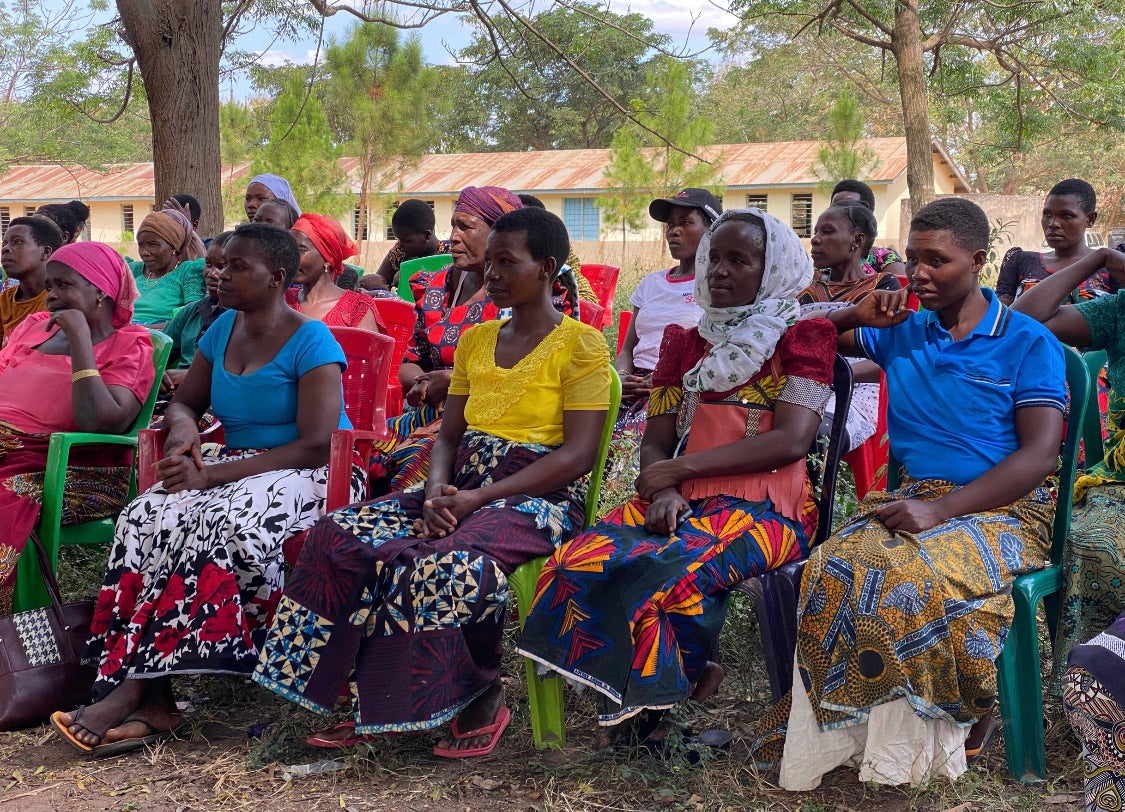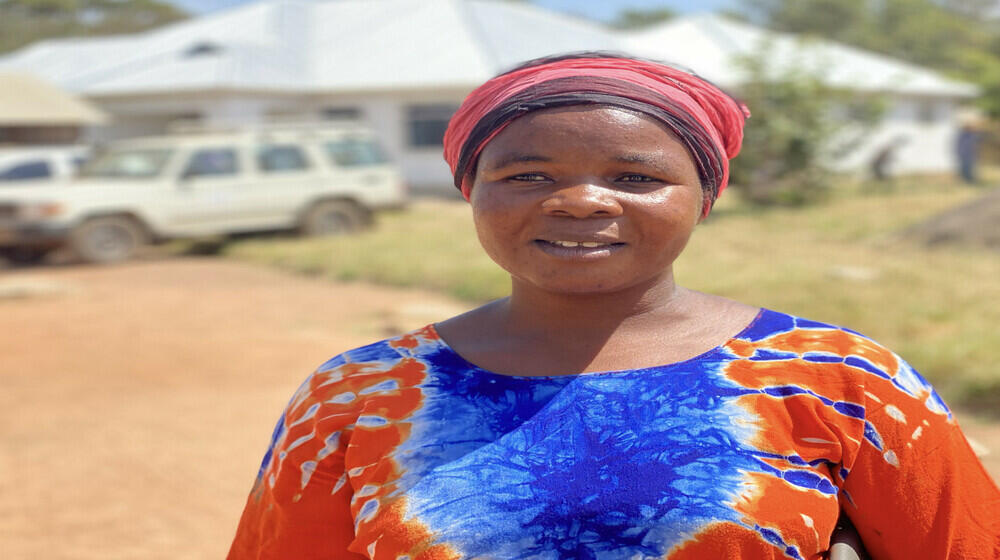Hilda is more than a survivor; she is an instigator of change who boldly stepped forward to seek support in response to gender-based violence in her household. A resident of Bugarama Ward, Msalala District, affected by alcohol-related domestic violence, Hilda successfully took action to improve her situation and resultantly empowered all women in Msalala.
Hilda and her husband, Mwinyishehe, now in their mid-30s, have two children; a seven-year-old boy and three-year-old girl. Soon after their marriage, Mwinyishehe developed negative alcohol consumption habits. After drinking with friends, he was often aggressive and violent towards Hilda and their children.
Through women in her community, Hilda was invited to join the Bugarama Knowledge Center, where she participated in community dialogues about gender-based violence. She received psycho-social counselling and learned about her rights and opportunities to seek support from social welfare and health care providers at the Bugarama Health Center, who supported her to file a police report against her husband.
“It was the first time a woman from the Bugarama Ward had filed a domestic violence case against her husband. We hope that more survivors of gender-based violence will feel empowered to come forward and seek assistance. Through GBV case management trainings and mentorship, we are aware of the steps to manage these sensitive cases. I look forward to supporting GBV survivors at the One Stop Center in Bugarama Ward when it opens later this year.” George Mwimboko, GBV Service Provider at the Bugarama Health Center.
Mwinyishehe was arrested, and simultaneous to his judicial court trial, he and Hilda went through marriage counselling. Within a month the couple reached a compromise and Hilda withdrew the case. Mwinyishehe received a warning from the judge that any further acts of domestic violence or alcohol abuse would result in a prison sentence. He pledged before local authorities to be a responsible husband and father and committed to financially provide for his family. He resumed employment as a security guard and reunited with his wife and children.
Hilda has taken further steps to share her story, to encourage other women to speak out and seek assistance. After Hilda’s case, women in Bugarama Ward became more aware of their rights and united their efforts to eliminate gender-based violence through awareness raising in the community on market days.
Since the KOICA funded UNFPA and UN Women Joint Programme: “Realizing Gender Equality through Empowering Women and Adolescent Girls” started in 2020, the women’s group in Bugarama have actively participated in Knowledge Centers dialogues, which provide education on their rights and promote community-led solutions and actions for prevention and response to violence against women.
As a specific action, the women’s group in Bugarama Ward collectively decided that they would no longer prepare and serve alcohol at home, and with local or traditional liquor no longer distilled in the village, they called upon men who want to drink to go outside the village. As a result, the overall consumption of alcohol decreased and male community members began to support women and girls who raised their voices against violence.

Women at the Bugarama Knowledge Center participate in community dialogues to end GBV in their community. The effort is supported by the UNFPA/UN WOMEN Joint Programme, with financial support from KOICA. Photo @UNFPATanzania / Warren Bright
The UNFPA and UN Women Joint Programme aims to advance gender equality and empower women and adolescent girls in Shinyanga and Singida Regions. These regions were selected due to high poverty rate, low economic empowerment of women, and prevalence of GBV and harmful practices. The programme promotes economic empowerment for female farmers through introduction of new horticulture and sunflower production practices and addresses GBV and child marriage through multi-sectoral prevention and response.
In addition to the Knowledge Center, a One Stop Center, which is currently under construction, is soon-to-be-launched in Bugarama. This center is the result of UNFPA efforts with strong collaboration from national and local government authorities.
“Under the Joint Programme, three One Stop Centers are under construction in Msalala District, Ikungi District and at the Regional level in Singida. The programme will also continue working with the communities to support women and girls and convene dialogue with men and boys to promote positive masculinity in the two programme districts”. Ms Heo Eun, Deputy Country Director, KOICA Tanzania.
The One Stop Centers, funded under the Joint Programme, are being constructed under the leadership of the District Councils and will provide integrated GBV response, including medical, psychosocial, social welfare and legal services in the facility. The integrated approach is designed to help survivors seeking critical and comprehensive support to avoid the barriers, stigma, security risks and associated trauma of travelling and reporting to multiple service facilities.
The establishment of the One Stop Centers is complemented by capacity building for community-led prevention efforts to empower women and girls and challenge harmful gender and social norms and practices. Key achievements under the KOICA-funded Joint Programme include the establishment of women and children protection committees; one at the district, 12 at the ward and 22 at the village level, outreach from 60 trained paralegals, and convening of two Knowledge Centers.
The programme also supports life skills-based education and vocational training for adolescent girls in Shinyanga and Singida Regions. To date, a total of 375 adolescent girls are enrolled in Girl Clubs and have been trained on life and vocational skills. As a result, women like Hilda and her daughter now understand their rights to decision making power over their own lives: if, when and whom they wish to marry, if and when they want to have children and how to use their earnings, and have enhanced skills to more effectively support themselves and their families.
“UNFPA appreciates the commitment of the Government of the United Republic of Tanzania to eliminate gender-based violence and harmful practices. Advancement of gender equality through empowerment of women and girls is a critical and meaningful step that we must take together to accelerate socio-economic development .” Mark Bryan Schreiner, Representative, UNFPA United Republic of Tanzania.
*Names have been changed.


